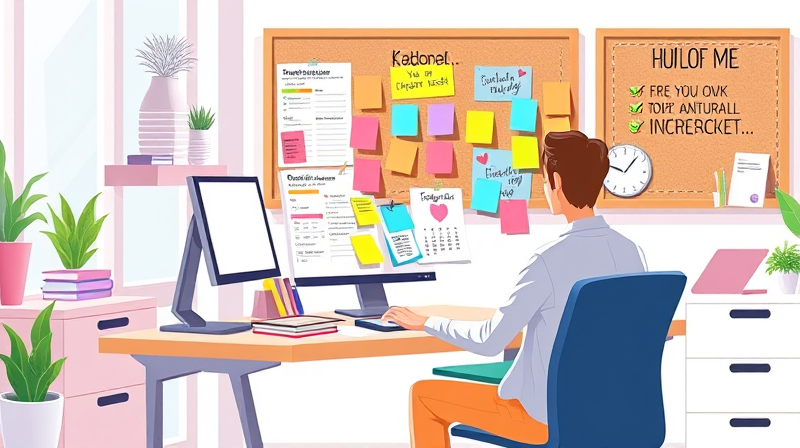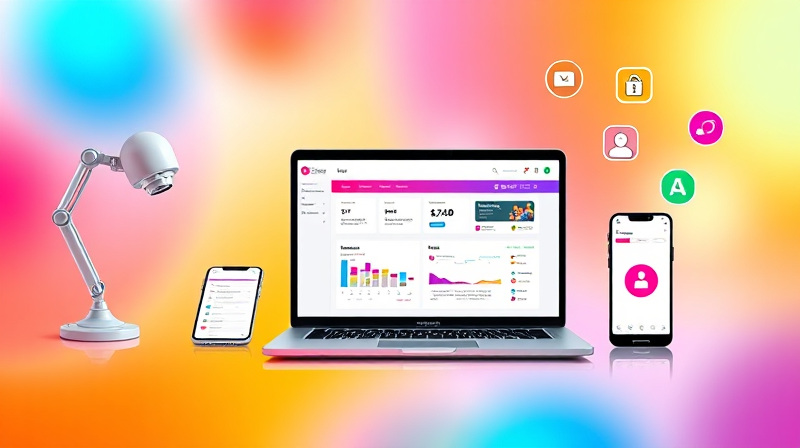In today's fast-paced world, professionals often find themselves struggling to maintain an equilibrium between work and personal life. As we move further into 2025, the challenges of juggling professional demands with personal responsibilities have become more pronounced. This article provides practical suggestions and inspiring insights to help you achieve a healthy and sustainable balance.
It is essential to recognize that balance is not a one-time achievement but rather a continuous process of adjustments, clear boundaries, and self-care.
Embrace Flexible Work Arrangements
Flexible work arrangements have reshaped the modern workplace. Many companies are now offering options such as remote work, flexible hours, and compressed workweeks. These options allow employees to better manage their time and responsibilities, alleviating stress and paving the way for improved overall well-being.
By integrating flexibility into your schedule, you are not only tackling professional tasks efficiently but also creating more opportunities to nurture your personal interests and health.
- Remote Work: Enjoy the benefits of working from home while minimizing commute time.
- Flexible Hours: Choose working times that best match your natural productivity rhythms.
- Compressed Workweeks: Optimize your work schedule to release more time for leisure and family.
Utilize these arrangements to craft a workday that serves both your professional aspirations and personal needs.
Set Clear Boundaries
Establishing clear boundaries between your work and personal life is critical. Creating distinct work times and spaces helps you avoid the inevitable overlaps that often lead to burnout. Setting these limits enables you to safeguard your personal time and maintain productivity during work hours.
Key strategies for setting boundaries include:
- Defining specific working hours: Especially for remote workers, recognizing when the workday begins and ends is vital.
- Designating a workspace: A consistent, organized home office can subconsciously cue your brain to focus on work during set hours.
- Disconnecting from work emails: Avoid checking emails or messages outside of your designated work time to preserve precious personal moments.
These practices help create a clear distinction between professional responsibilities and private life, ensuring that neither realm overshadows the other.
Prioritize Health and Well-being
Your health is the foundation upon which both your work and personal achievements are built. Prioritizing physical and mental well-being is not a luxury, but a necessity. Engage in daily practices that promote a sense of calm and boost your overall energy.
Consider incorporating the following into your routine:
- Regular exercise: A daily 30-minute walk or a quick workout can revitalize your body and mind.
- Mindfulness practices: Meditation, journaling, or mindfulness exercises can help manage stress and clarify your thoughts.
- Social connections: Spending quality time with friends and family reinforces emotional stability and enriches your personal life.
Remember, your health and well-being are integral to achieving professional success, so never compromise on self-care.
Manage Your Time Effectively
Time management is an art that can significantly impact your ability to balance work and personal obligations. Setting realistic schedules, prioritizing tasks, and focusing on what truly matters are key strategies that enhance your efficiency and free up time for leisure and personal growth.
To manage time effectively, try these tips:
- Set realistic goals: Avoid overloading your day by breaking tasks into manageable pieces.
- Focus on high-value activities: Concentrate on work that delivers measurable results rather than merely extending work hours.
- Implement time management techniques: Techniques like the Pomodoro Technique or time blocking can maximize your productivity during work periods.
Adopting these strategies will lead to enhanced productivity, allowing you to enjoy more fulfilling personal time.
Take Regular Breaks and Vacations
Regular breaks are vital in preventing burnout, boosting creativity, and improving overall job satisfaction. Engaging in short breaks throughout your workday enables you to recharge and maintain focus.
Consider the importance of:
- Taking short breaks during work to clear your mind.
- Utilizing vacation days fully for rest and rejuvenation.
- Pursuing hobbies and activities that bring joy and fulfillment outside of work.
These breaks not only provide respite but also enhance your ability to tackle work-related challenges with renewed energy.
Communicate and Seek Support
No journey toward balance is accomplished alone. Open communication with your employer, colleagues, family, and friends plays an essential role in maintaining equilibrium. Express your needs and concerns to create an environment that supports your dual aspirations of professional success and personal happiness.
Don't hesitate to:
- Discuss work-life balance challenges with your supervisor or team.
- Seek professional help or advice when feeling overwhelmed.
- Delegate tasks both at work and home to lighten your load.
These steps encourage a supportive network that values your well-being as much as your professional contributions.
In conclusion, achieving and maintaining a balance between professional and personal realms is an ongoing process. Embracing flexible work arrangements, setting clear boundaries, prioritizing health, managing time effectively, taking regular breaks, and seeking support are all strategies that empower you to live a more balanced and inspiring life.
Be patient with yourself as you navigate this journey. Every small adjustment can lead to significant overall improvements in your quality of life. Remember, your well-being is the foundation for a successful, fulfilling existence both at work and in your personal life.








